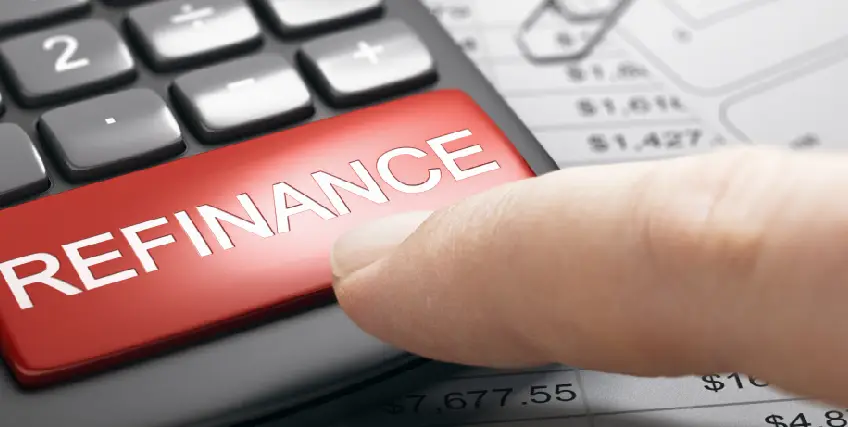How to Write a Business Plan That Gets You a Small Business Loan
August 25, 2025 | Last Updated on: August 25, 2025

Securing working capital is one of the biggest challenges faced by entrepreneurs today. For many, the most practical way to bridge funding gaps is through small business loans for starting a business. Yet securing those funds doesn’t come easy. Lenders want to minimize risk, and the best way to convince them is through a detailed, well-structured business plan.
A business plan not only acts as your road map but also demonstrates your seriousness, financial knowledge, and long-term vision.
In this guide, we’ll walk you through how to develop a business plan that significantly improves your chances of approval for small business loans for starting a business while also making your foundation strong for sustainable growth.
Why a Business Plan Is Essential for Loan Approval
The lenders are receiving applications every day. In order to be heard and receive small business loans for starting a business, your business plan has to speak their language: clarity, feasibility, profitability, and risk management.
Essentially, what your business plan accomplishes is tri-fold. First, it shows the viability of your business proposal. Second, it provides clarity in your financial strategy. Third, it addresses your ability to repay. Lenders can't securely determine whether lending money is worthwhile without a business plan.
Most small business owners also make the mistake of focusing only on cash flow needs. In reality, traditional banks, credit unions, and even online lenders looking at small business loans for starting a business want to see clearly articulated marketing, operations, and expansion plans.
Understanding the Structure of an Effective Business Plan
In order to maximize small business loans for starting a business, the format of your business plan should be clear and professional. Let's outline the major elements that any effective business plan must possess.
Executive summary
Your executive summary is your "hook." It's the first section lenders will read, but often the final section you'll write. This section should concisely tell who you are, what your company does, your market potential, and how much business financing you're seeking.
When seeking small business loans for starting a business, be specific about how the loan program will be used. Lenders like to know that borrowed funds will generate revenue directly, remove threats, or increase cash flow.
Company description
Describe your company's legal form, history (if any), and how your concept differs from that of competitors. For firms seeking small business loans for starting a business, it is essential to demonstrate how your leadership experience and industry expertise provide a competitive edge.
You must also emphasize the issue your product or service addresses and why your offering has a good market demand.
Market analysis
Lenders want reassurance that you’ve researched your customer base and industry deeply. Market analysis should cover the size of your target market, customer demographics, purchasing trends, and the competitive landscape.
Applicants seeking approval for small business loans for starting a business must present data-driven projections. For instance, explain your projected growth compared to industry averages. This level of research showcases professionalism and helps lenders feel secure about financing your project.
Marketing and sales strategy
Your customer access is as important as your product. Explain how you will generate demand using digital channels, advertising, networking, or collaborations.
An award-winning strategy for small business loans for starting a business also needs to tackle a sales funnel approach, how leads turn into paying customers. Explain pricing models, promotion campaigns, and client acquisition. Where appropriate, include case studies or early traction to boost credibility.
Business operations plan
Operations details are important to lenders because they demonstrate you can deliver on commitments. This section must describe your supply chain, personnel, technology, and logistical assets.
When seeking small business loans to start a business, highlight efficiency and toughness. For instance, if you have a restaurant, describe inventory control and vendor contracts. If you have a consulting business, describe your client intake process.
Financial projections
This is usually the make-or-break part of whether your small business loan application for a business start-up succeeds or not. Lenders would like to see comprehensive projections of income statements, balances, and forecasts of cash flows, at least three years into the future.
Ensure you specifically detail how borrowed money will be invested. For example, are they being utilized for equipment purchases, marketing efforts, staffing, or managing inventory? Every dollar needs to be justified with a plan to make returns to facilitate repayment.
Loan request & repayment plan
Express the loan amount you're asking for and the repayment plans clearly. You need to tie the amount you seek to concrete business purposes, for instance, "a loan of $150,000 shall be used in machinery replacement anticipated to increase output by 30% annually."
Small business loans for enterprise start-ups, lenders will consider both your ability to repay and planning for contingencies.
Tailoring Your Plan to Different Lenders
It takes more than writing a generic plan. The success of small business loans for starting a business relies on tailoring your plan to various lending institutions.
- Traditional Banks: Focus on financial health, precise projections, and security of investments. Banks prefer low risk.
- Credit Unions: Emphasize local contribution and long-term viability. Credit unions tend to prefer borrowers who have heavy local involvement.
- Online Lenders: Highlight potential for growth, flexibility, and quick execution. Online lenders may be more likely to lend to a startup business, as long as cash flow projections seem reasonable.
Each of the lender types calls for a different focus and a type of loan, but all of them call for a solid business plan that shows repayment certainty.
How Startups Can Strengthen Loan Applications
For small business start-up costs, the problem is that lenders usually demand established financial performance for qualifying for small business loans for starting a business. Without decades of revenue, start-ups have to convince lenders with more intense market research, a solid marketing strategy, and concise funding needs.
At this point, most new owners shop around for small business start-up loans that are explicitly for new businesses. Blending these sources of financing with a well-written business plan enhances your prospects significantly. Although risks are greater for the lenders, demonstrating preparation reduces their anxiety.
Balancing Loans with Alternative Funding
While small business loans for starting a business remain the most accessible resource, it's also a good idea to diversify funding. Some entrepreneurs seek government-backed loans to start their own businesses, while others look at microloans to begin a business through other online lenders that have lenient approval policies.
Further, investigating business grants for small business ventures can eliminate dependence on loans in the first place. Such grants are non-repayable, making them a great complement to borrowed funds when available.
Nevertheless, lenders still anticipate that your business plan illustrates thoughtful repayment planning despite alternative sources of finance or refinancing.
Common Mistakes to Avoid in Your Business Plan
Avoid these pitfalls when taking out small business loans for starting a business:
- Overestimating projected annual revenues with no supporting data.
- Making loan requests with no direct linkage to tangible business objectives.
- Omitting marketing plans on the expectation that the product will "sell itself."
- Including imprecise repayment timelines with no financial details.
Avoiding these mistakes not only improves chances of approval but also solidifies long-term business viability.
Revisiting and Updating Your Business Plan
A business plan is not a "one and done" document. The plan you utilize in procuring small business loans for starting a business today may require revisions as your business matures, sales competitors arise, or market trends change.
Periodic re-examination of your growth plan and finances enables you to have a well-honed and current plan ready to present to lenders when you seek more funds. Being so prepared saves time and creates more long-term loans credibility with banks and other financial institutions.
Conclusion
Preparing a business plan that would get small business loans for business development demands discipline, research, and vision. Lenders demand confidence, and such confidence should be based on a well-constructed plan that reflects not just your enthusiasm but also your capability to carry out and repay in a responsible manner.
By incorporating key components such as elaborate financial projections, loan applications accompanied by specific uses, a comprehensive market study, and tangible sales plans, you differentiate yourself from the others.
Whether you seek small business start-up loans, apply for a government-backed loan to start a small business, look at alternative loans to start up a business, or even search for business grants for small businesses, your business plan is the anchor that enhances trust and diminishes risk in lenders' eyes.
Ultimately, the best business plans strike a balance between ambition and realism. Craft yours with diligence and precision, and you’ll not only increase your chances of funding but also pave the way for sustainable growth well beyond the loan approval process.
FAQs About Small Business Loans for Starting a Business
Do I need a business plan to get a small business loan?
While it’s possible to secure small business loans for starting a business without a plan, creating one is still wise. A business plan outlines goals, improves creditworthiness, and serves as a roadmap for future decisions and growth.
How long should a business plan be for an SBA loan?
A business plan should project three to five years ahead and include growth strategies, revenue goals, and financial outlook. For an SBA 7(a) loan, lenders expect a clear, updated document showing how your business will use SBA-guaranteed funds effectively.
What qualifies for a small business loan?
Eligibility for small business loans for starting a business depends on income sources, ownership, and operations. Generally, businesses must meet U.S. Small Business Administration size standards, show repayment ability, and demonstrate sound purpose. Even with a poor credit history, some SBA-guaranteed financing options may still be available.
Do you need proof of income for a small business loan?
Lenders require updated records such as tax returns, bank statements, and profit and loss reports. Strong documentation proves steady income and solid cash flow, strengthening your creditworthiness and eligibility requirements for an SBA 7(a) loan or other financing.
Can you get a business loan with just a business plan?
If you want full ownership but lack startup capital, small business loans for starting a business can help. However, besides a business plan, you’ll need expense sheets and five-year projections. Lenders use these to gauge repayment capacity and overall creditworthiness.
Frequent searches leading to this page
Related Articles
How Credit Scores Impact Startup Business Loans and What Founders Can Do About It
February 19, 2026
Term Loans are made by Itria Ventures LLC or Cross River Bank, Member FDIC. This is not a deposit product. California residents: Itria Ventures LLC is licensed by the Department of Financial Protection and Innovation. Loans are made or arranged pursuant to California Financing Law License # 60DBO-35839




